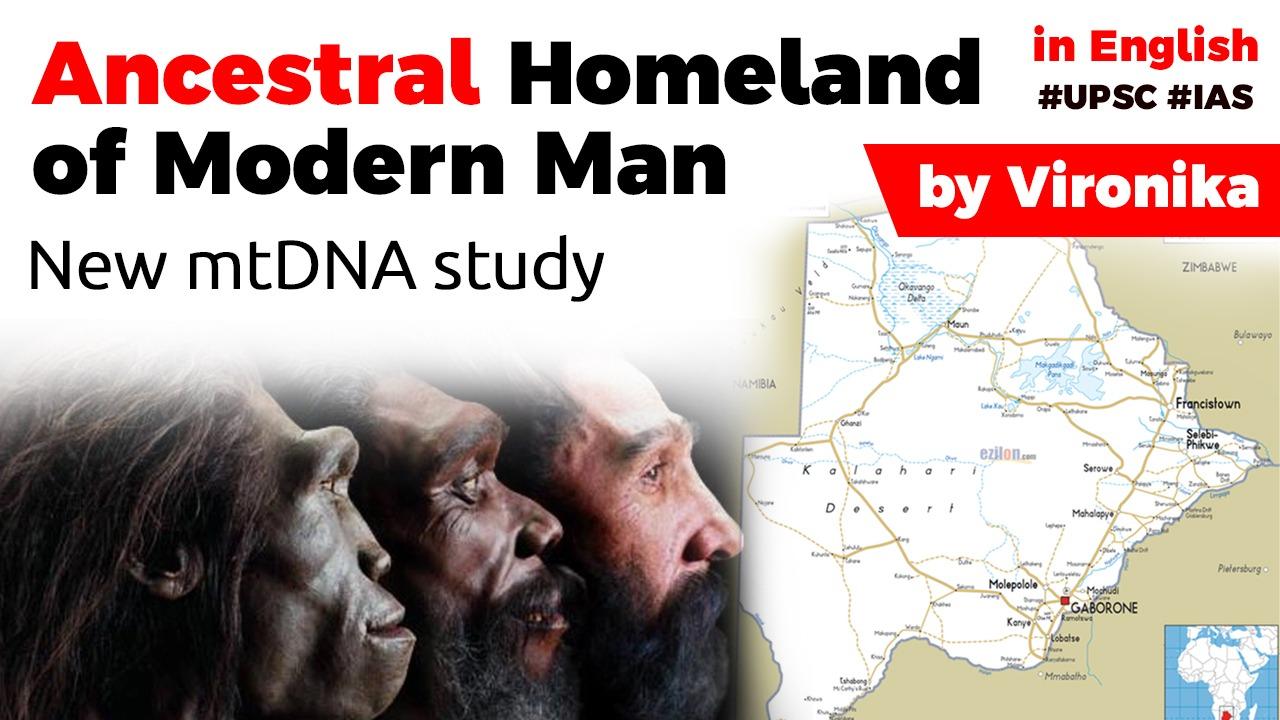Table of Contents
- A recent paper in the prestigious journal Nature claims to show that modern humans originated about 200,000 years ago in the region around northern Botswana.

- The scientists studied genetic data from many individuals from the KhoeSan peoples of southern Africa, who are thought to live where their ancestors have lived for hundreds of thousands of years.
Mitochondrial DNA
- Mitochondrial DNA is the small circular chromosome found inside mitochondria.
- These organelles found in cells have often been called the powerhouse of the cell.

- The fact that mitochondrial DNA comes almost only ever from mothers also means the story of its inheritance is much simpler than the histories of other genes.
What is Mitochondria?
- Mitochondria are membrane-bound organelles present in the cytoplasm of all eukaryotic cells, that produces adinosine triphosphate (ATP), the main energy molecule used by the cell.”


Functions
- Regulates the metabolic activity of the cell
- Promotes the growth of new cells and cell multiplication
- Helps in detoxifying ammonia in the liver cells
- Plays an important role in apoptosis or programmed cell death
Mitochondrial DNA
- Mitochondrial DNA(mtDNAor mDNA is the DNA located in mitochondria, cellular organelles within eukaryotic cells that convert chemical energy from food into a form that cells can use, adenosine triphosphate (ATP).
- Mitochondrial DNA is only a small portion of the DNA in a eukaryotic cell; most of the DNA can be found in the cell nucleus
- Homo sapiens, the most prominent species on earth is the result of over 7 million years of evolution. The traces of human evolution have been obtained through fossil records, and morphological, physiological and embryological studies.
- Man belongs to the family Hominidae of the order Primates. Humanlike apes belong to the same order. With the passage of time, their ancestors evolved and became more and more different.
- The first ever ancestors of humans are believed to have originated in Africa, eventually migrating in Europe, Asia and the rest of the world.
- Dryopethicus
- Australopithecus
- Homo habilis
- Homo erectus
- Homo sapiens
New Human Ancestor Species Found
- Scientists have identified a new human ancestor species previously unknown. It has been named as Homo luzonensis.

- Unlike Homo sapiens, whose premolar teeth generally have a single root, Homo luzonensis’ premolars had two or three roots, similar to more primitive species such as Homo erectus, which lived in Africa and Asia between about 1.89 million and 143,000 years ago.
Latest Burning Issues | Free PDF






















 WhatsApp
WhatsApp